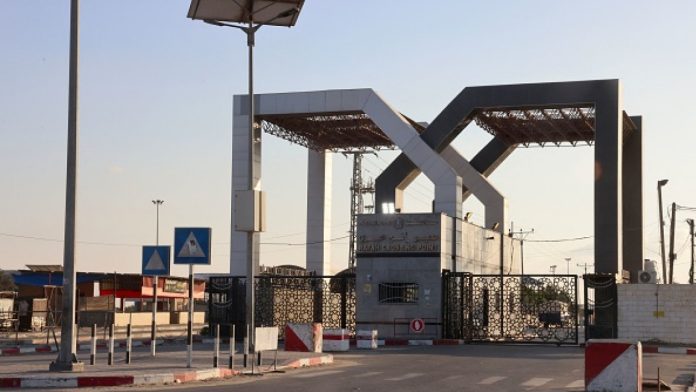The border crossing between Egypt and Gaza opened on Saturday, bringing into view the full extent of the humanitarian crisis that has erupted since the beginning of the confliсt.
As Israel continues to launch airstrikes on the Gaza Strip, destroying entire neighbourhoods, while Palestinian militants fire rockets into Israel, the humanitarian crisis is worsening.
As a consequence, the border crossing between Egypt and the Gaza Strip opened on Saturday, bringing a flood of much-needed aid to the besieged Palestinian territory for the first time since Israel closed it following a bloody rout by Hamas a fortnight ago. 2.3 million Palestinians, half of whom have fled their homes, are forced to restrict their food and drink dirty water.
Although only 20 trucks entered Gaza on Saturday out of more than 200 trucks carrying some 3,000 tonnes of humanitarian aid that have been at the crossing for days, the head of the UN World Food Programme said the aid was insufficient.
“We need many, many, many more trucks and a continual flow of aid,” Cindy McCain told The Associated Press, adding that some 400 trucks were entering Gaza daily before the war.
The Hamas-run government in Gaza also said a limited convoy “will not be able to change the humanitarian catastrophe” and called for a safe corridor operating around the clock. Israeli military spokesman Rear Adm. Daniel Hagari said that “the humanitarian situation in Gaza is under control”.
Guterres meanwhile gave voice to growing international concern over civilians in Gaza, telling a summit in Cairo that Hamas’ “reprehensible assault” on Israel two weeks ago “can never justify the collective punishment of the Palestinian people.”
On Friday, incidentally, Hamas released Judith Raanan and her 17-year-old daughter Natalie on humanitarian grounds under an agreement with Qatar, a Gulf country that often mediates in the Middle East.
Hamas said it was working with Egypt, Qatar and other mediators “to close the case” of hostages if security circumstances permit.
Egyptian President Abdel Fattah el-Sissi, who hosted Saturday’s summit, called for aid to Gaza, a ceasefire and a resumption of Israeli-Palestinian peace talks, which last broke down more than a decade ago. He also said the conflict would never be resolved “at Egypt’s expense,” referring to fears that Israel might try to push the people of Gaza into the Sinai Peninsula.
King Abdullah II of Jordan told the summit that Israel’s air campaign and siege of Gaza was “a war crime” and slammed the international community’s response. “Anywhere else, attacking civilian infrastructure and deliberately starving an entire population of food, water, electricity, and basic necessities would be condemned,” he said. Apparently, he added, “human rights have boundaries. They stop at borders, they stop at races, they stop at religions.”
European Commission President Ursula von der Leyen called Rafah’s discovery “an important first step that will alleviate the suffering of innocent people.”
Over one million people have been displaced in Gaza. Many have heeded Israel’s order to evacuate from north to south within the isolated coastal enclave. But Israel continues to bomb areas in southern Gaza where Palestinians have been told to seek safety, and some appear to be returning to the north because of the bombing and harsh living conditions in the south.
More than 1,400 people have died in Israel during the war – mostly civilians killed during the Hamas invasion. Palestinian militants continue to fire rockets at Israel – more than 6,900 rockets have been fired since 7 October, according to the military. More than 4,100 people have been killed in Gaza, according to the Hamas-run health ministry. That number includes the disputed death toll from a hospital bombing earlier this week. Another 1,400 people, presumed dead or alive, are buried under rubble, according to the ministry.
